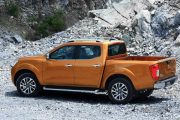Acquiring a Jeep is an age-old rite of passage, the next best thing to becoming a man. For decades, Jeep models have represented “America’s first SUV,” and their rugged build and go-anywhere ability are second to none. Whether you’re in the market for your first Jeep or want to replace your old one, it pays to know all about custom jeeps for sale in fullerton before you read car reviews from various websites or head out to dealerships, where salesmen will likely attack you like hungry dogs.
It’s possible that you’ve already been offered a “free fill up” of gas when test driving Jeeps at your local dealership. This isn’t just a sales tactic. Jeeps are very thirsty and you will likely be spending more at the pump, especially if you buy one of the older models.
If you like to go camping, Jeeps are great for your purposes. They’re able to handle off-road terrain with ease, and they have a generous cargo space to fit all your gear. They’re even great for hauling lumber down to the hardware store or picking up a pallet of bricks from the lumberyard. From hauling supplies around on grassy fields and sandy beaches to giving your son or daughter their first driving lesson in an open field, a Jeep is an ideal vehicle for the outdoors.

If you’re planning to take your family on a road trip, it may be wise to add a Jeep Wrangler model to your list. The Wrangler is one of the California Air Resources Board’s zero-emissions vehicles, which means it has no tailpipe emissions and releases no greenhouse gases into the air. These are important things for environmentalists because they mean that there will be less pollution in the environment. This sounds like a good thing, but it’s not as simple as it seems. Keeping track of these vehicles’ carbon footprints can be difficult because many people don’t realize that their jeeps are emitting carbon into the world every time they drive them on public roads.
Why is this? Because carbon emissions from motor vehicles are reported in terms of grams per mile, and since most jeep Wranglers only get about 25 miles per gallon, driving them for a long distance puts more CO2 into the air than a car that gets much better gas mileage. This comparison doesn’t even factor in the energy used to produce the Jeep or any of its parts.
And what about using your Jeep for less environmentally-friendly activities like taking off-roading trips or having drag races? These activities can also have a negative impact on the environment, not just because they require so much fuel but also because they destroy habitats and damage ecosystems.


